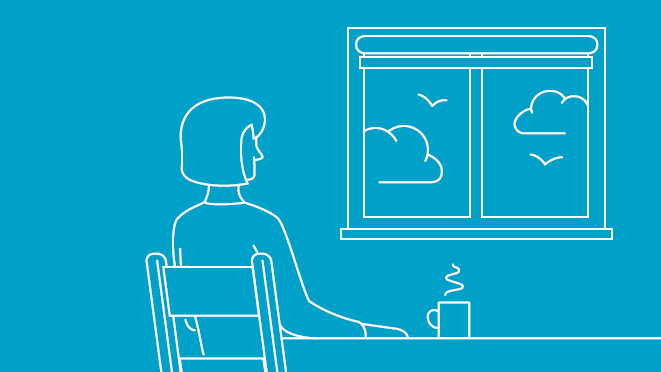
Guidance for supporting the mental health and wellbeing of displaced Ukrainians
Guidance and training offers for professionals or volunteers supporting those arriving from Ukraine to the UK.
Guidance and training offers for professionals or volunteers supporting those arriving from Ukraine to the UK.

Toolkit
The Department for Levelling-Up, Housing and Communities’ Homes for Ukraine scheme launched at the end of March 2022, to allow people in the UK to welcome displaced Ukrainians into their homes.
There has been a significant groundswell of support, with more than 150,000 people registering to take part and support a displaced family within the first few days of the scheme launching.
GUIDES: Helping with displaced Ukrainians' concerns or worries
Guidance for those welcoming displaced Ukrainians into their homes.
As the details of sponsorship continue to be finalised, Thrive LDN and partners have put together a short guide for supporting the mental health and wellbeing of displaced Ukrainians arriving to the UK.
Designed to help those supporting people affected by the Ukraine crisis, the guidance has been produced to help families create a safe and welcoming environment for displaced Ukrainian people and avoid the potential for further harm.
Outlined in the document are some simple dos and don’ts, based on the experiences of other groups of refugees. The guidance highlights how kindness, patience, and empathy will be vital.
The guidance also contains further information on assisting displaced Ukrainians to access professional support, including NHS mental health and wider community support services.
Thrive LDN have also worked with partners to develop a ‘help with your concerns or worries guide’ for displaced people that outlines tools and ideas encouraging good mental health and wellbeing. This is available in Ukrainian as well as English .
-
Download the Help with your concerns of worries guide in Ukrainian (PDF)
-
Download the Help with your concerns or worries guide in English (PDF)
TRAINING VIDEO: Supporting refugees with their mental health
Paul Cilla La Corte, the London Therapeutic Services Manager for Refugee Council, shares his experiences of supporting displaced people
Thrive LDN and the Refugee Council have developed a short video for volunteers and professionals on engaging with refugees and asylum seekers, particularly in relation to supporting mental health and wellbeing.
In the video, Paul Cilla La Corte, London Therapeutic Services Manager for The Refugee Council, shares helpful information and advice learned from the nine years he has spent working with refugees and asylum seekers.
WORKBOOK: Supporting those struggling after traumatic experiences
Techniques to help people who have experienced trauma and are out of danger now.
Good Thinking’s Coping with Trauma workbook outlines seven techniques to help people who have experienced trauma and are out of danger now.
The workbook provides health care and community partners with a helpful resource that offers expert and trauma-informed support.
The workbook has been developed in partnership with trauma expert, Caroline Harrison, a Cognitive Behavioural Therapist at the Centre for Anxiety Disorders and Trauma, South London and Maudsley NHS Foundation Trust.
You can also explore further coping mechanisms for stress from Good Thinking.
TRAINING: Two new free e-learning courses from Solace
Solace has launched two new free e-learning courses aimed at those who want to improve their support for the emotional wellbeing of asylum seekers and refugees.
Understanding Refugee and Asylum Seeker Mental Health
Would you like to be able to better support the emotional wellbeing of people seeking asylum in the UK, and influence others in your organisation to do the same?
Solace’s new online course is aimed at people in any role who may find themselves coming into contact with asylum seekers and would like to develop their understanding of the issues impacting their wellbeing so they can provide effective help.
Effective Therapeutic Support for Asylum Seekers
Would you like to be able to better support the emotional wellbeing of people seeking asylum in the UK, and influence others in your organisation to do the same?
This course is the second in Solace’s series, and is aimed at mental health practitioners. It builds on course one.
Further support and guidance
There are lots of different types of support available.
- You can find up to date questions and answers on the Homes for Ukraine scheme on the UK Government’s website. As well as guidance which outlines important information for sponsors, including responsibilities of sponsors and how sponsors may support their guests.
- London Plus has a list of services for Ukrainians by London borough and includes information on volunteering and donating.
- OPORA is a charitable association operating in the UK and the Czech Republic aiming to provide both emergency and long-term support to displaced Ukrainians. You can explore a range of resources, including a community sourced guide for helping people prepare to welcome Ukrainian guests into their home.
- The Inter-Agency Standing Committee (IASC) has collated a range of resources on Mental Health and Psychosocial Support in Emergency Settings, which has also been translated into Ukrainian.
- The NHS in North East and Yorkshire has produced a helpful document to support stakeholders to respond to the health and wellbeing needs of newly arrived Ukrainian nationals, the range of resources and organisations listed are also applicable for other regions including London.
- NHS Safeguarding has produced a rapid read for Health and Safeguarding Refugees and People Seeking Asylum.